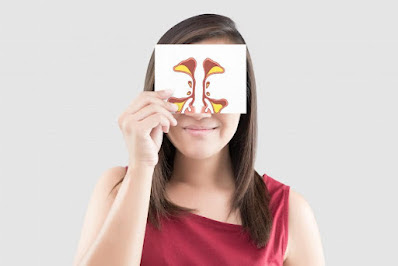Restless Leg Syndrome (RLS) can be particularly troublesome during sleep, leading to discomfort and disruption. It's a neurological disorder characterized by an irresistible urge to move the legs, often accompanied by uncomfortable sensations. This condition significantly impacts the quality of life for many women. While its exact cause remains unclear, factors such as genetics, iron deficiency, pregnancy, and certain medications are thought to contribute to its development. Fortunately, various natural remedies for restless legs during sleep exist that women can incorporate into their nightly routine to alleviate RLS symptoms and find relief in the comfort of their homes.
Causes And Natural Remedies for Restless Legs During Sleep
Genetics: Family history suggests a genetic predisposition to RLS, indicating a hereditary component to the condition.
Iron Deficiency: Low levels of iron in the brain may disrupt dopamine signaling which leads to RLS symptoms. Iron deficiency anaemia, especially common in women, is often associated with RLS.
Pregnancy: Hormonal changes and increased pressure on the legs during pregnancy, particularly in the third trimester, can exacerbate RLS symptoms.
Medications: Certain medications, including antipsychotics, antidepressants, and antihistamines, may worsen RLS symptoms or trigger new onset RLS.
Other Health Conditions: Chronic diseases such as kidney failure, diabetes, and peripheral neuropathy have been linked to RLS, suggesting a potential systemic connection.
12 Natural Remedies for Restless Legs During Sleep: Expert Tips
- Maintain a Consistent Sleep Schedule: Establishing a regular sleep routine helps regulate circadian rhythms, promoting better sleep quality and reducing RLS symptoms. Aim for consistent bedtimes and wake-up times, even on weekends.
- Engage in Regular Exercise: Moderate physical activity improves blood circulation and reduces stress, effectively managing RLS symptoms. Incorporate activities like walking, yoga, or swimming into your daily routine.
- Practice Stretching and Relaxation Techniques: Gentle leg stretches and relaxation exercises before bedtime help relieve muscle tension and promote relaxation, easing RLS discomfort. Focus on stretching the calves, hamstrings, and thighs.
- Take Warm Baths or Massages: Soaking in a warm bath or receiving a leg massage before bed relaxes muscles and calms the nervous system, providing immediate relief from RLS symptoms. Add Epsom salts or essential oils for added relaxation.
- Consider Dietary Adjustments: Limit caffeine and alcohol intake, especially in the evening, while ensuring adequate intake of iron, magnesium, and folate through diet. These nutrients support nervous system health and reduce RLS symptoms.
- Stay Hydrated: Proper hydration throughout the day alleviates dehydration-related RLS symptoms, contributing to overall symptom management. Aim to drink plenty of water and minimize diuretic beverage intake, especially before bed.
- Optimize Bedroom Environment: Create a comfortable sleep environment with cool temperatures and minimal disturbances. Invest in a comfortable mattress and pillows to promote better sleep quality and reduce RLS discomfort.
- Practice Stress Management: Engage in stress-reducing activities such as meditation, deep breathing, or progressive muscle relaxation to promote relaxation and reduce tension in the body. Stress exacerbates RLS symptoms, so finding healthy coping mechanisms is essential.
- Try Compression Therapy: Wearing compression stockings or socks during the day improves circulation and reduces the severity of RLS symptoms, providing relief and comfort. Put them on before bedtime for continued relief during sleep.
- Consider Herbal Remedies with Caution: Some herbal supplements like valerian root or magnesium may offer relief, but consult with a healthcare professional before use, especially if on medications or pregnant.
- Explore Alternative Therapies: Acupuncture, acupressure, or reflexology may stimulate relaxation and alleviate RLS symptoms, providing additional relief options.
- Maintain Regular Follow-ups with Healthcare Providers: Regular communication with healthcare providers ensures effective symptom management and adjustments to treatment plans as needed, promoting overall well-being and better sleep quality.
Incorporating these natural remedies into your nightly routine can help manage RLS symptoms and improve sleep quality without relying solely on medications. However, it's crucial to consult with a healthcare professional for proper diagnosis and personalized treatment recommendations. With proactive management and lifestyle adjustments, women can find relief from restless legs during sleep and enjoy better overall health and well-being.








